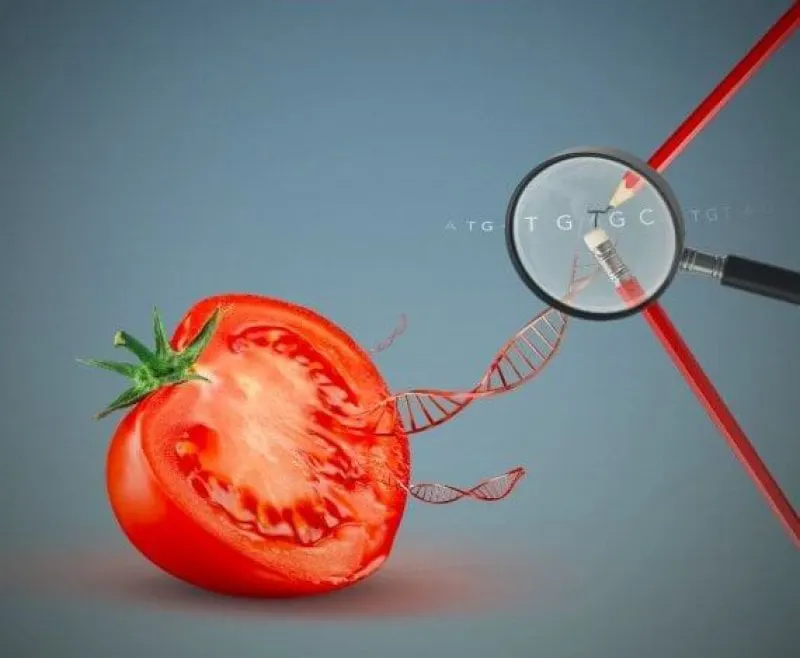Just 7 years old, CRISPR gene editing is making food more nutritious and battling COVID
Just 7 years old, CRISPR gene editing is making food more nutritious and battling COVID


Just seven years ago, the Broad Institute’s Feng Zhang, PhD, and Harvard geneticist George Church, PhD, separately demonstrated that in human cell cultures, genome editing could be performed using a CRISPR system. CRISPR, which stands for clustered regularly interspaced short palindromic repeats, first came to light as part of a naturally occurring defense system in bacteria.
…
The onset of the COVID-19 pandemic presented significant challenges, but also a great opportunity, since [biotech startup] Caspr had the tools to quickly develop a diagnostic kit for detection of SARS-CoV2 RNA …. Caspr set up an aggressive development timeframe to build a prototype kit and then produce and deploy at scale. Within three months, the company had submitted an emergency use authorization application to the FDA. The kit [is] …. accessible in a low-complexity or low-resource setting, and capable of completing analyses in less than 60 minutes.
…
Pairwise is another company with technology licensed from Harvard and the Broad Institute, plus Massachusetts General Hospital …. Pairwise has gone in the direction of agriculture, using CRISPR gene editing to make healthy fruits and vegetables more palatable.
…
Specifically, Pairwise is developing …. a form of mustard greens that lacks the sharp flavor of conventional mustard greens …. [T]he new mustard greens have both high nutrient content and high yields. Pairwise is also developing seedless blackberries and pitless cherries while exploring additional ways to bring new varieties to market.
Read the original post

 | Videos | More... |

Video: Nuclear energy will destroy us? Global warming is an existential threat? Chemicals are massacring bees? Donate to the Green Industrial Complex!
 | Bees & Pollinators | More... |

GLP podcast: Science journalism is a mess. Here’s how to fix it

Mosquito massacre: Can we safely tackle malaria with a CRISPR gene drive?

Are we facing an ‘Insect Apocalypse’ caused by ‘intensive, industrial’ farming and agricultural chemicals? The media say yes; Science says ‘no’
 | Infographics | More... |

Infographic: Global regulatory and health research agencies on whether glyphosate causes cancer
 | GMO FAQs | More... |

Why is there controversy over GMO foods but not GMO drugs?

How are GMOs labeled around the world?

How does genetic engineering differ from conventional breeding?
 | GLP Profiles | More... |

Alex Jones: Right-wing conspiracy theorist stokes fear of GMOs, pesticides to sell ‘health supplements’




 California, Washington, Oregon forge immunization alliance to safeguard vaccine access against federal undermining
California, Washington, Oregon forge immunization alliance to safeguard vaccine access against federal undermining Trust issues: What happens when therapists use ChatGPT?
Trust issues: What happens when therapists use ChatGPT? Fighting deforestation with CO2: Biotechnology breakthrough creates sustainable palm oil alternative for cosmetics
Fighting deforestation with CO2: Biotechnology breakthrough creates sustainable palm oil alternative for cosmetics Viewpoint — Fact checking MAHA mythmakers: How wellness influencers and RFK, Jr. undermine American science and health
Viewpoint — Fact checking MAHA mythmakers: How wellness influencers and RFK, Jr. undermine American science and health 30-year-old tomato line shows genetic resistance to devastating virus
30-year-old tomato line shows genetic resistance to devastating virus Viewpoint: Video — Big Solar is gobbling up productive agricultural land and hurting farmers yet providing little energy or sustainabilty gains
Viewpoint: Video — Big Solar is gobbling up productive agricultural land and hurting farmers yet providing little energy or sustainabilty gains The free-range chicken dilemma: Better for birds, but with substantial costs
The free-range chicken dilemma: Better for birds, but with substantial costs ‘You have to treat the brain first’:Rethinking chronic pain with Sanjay Gupta
‘You have to treat the brain first’:Rethinking chronic pain with Sanjay Gupta
